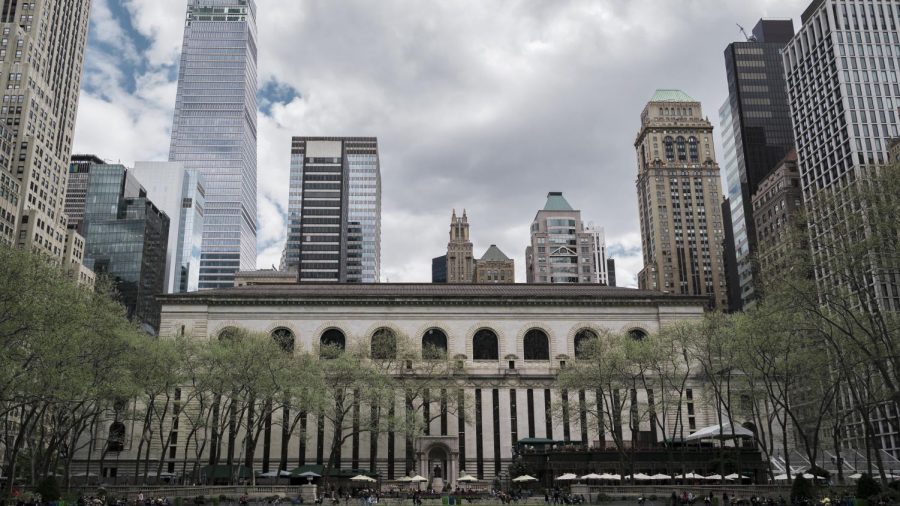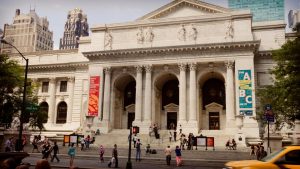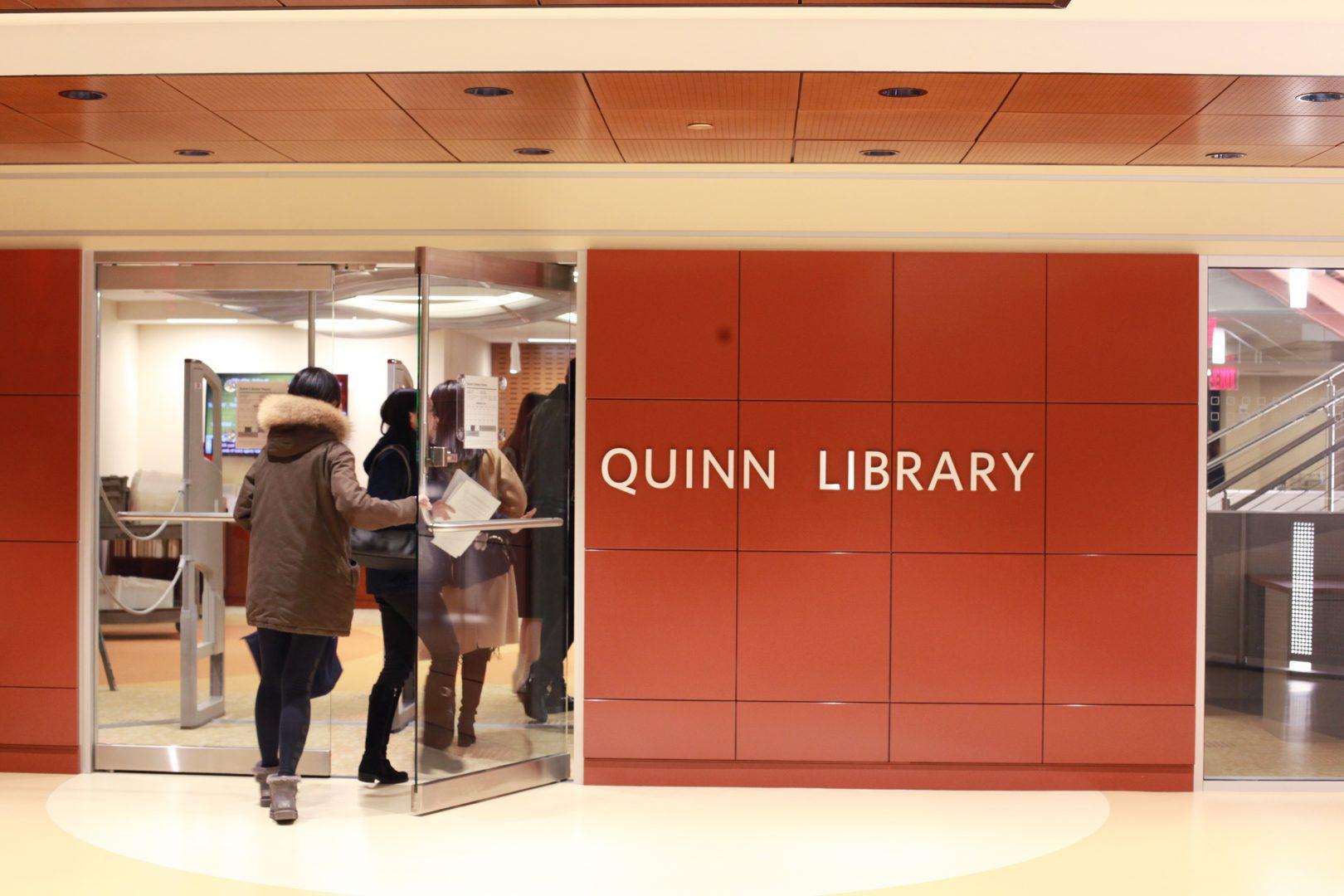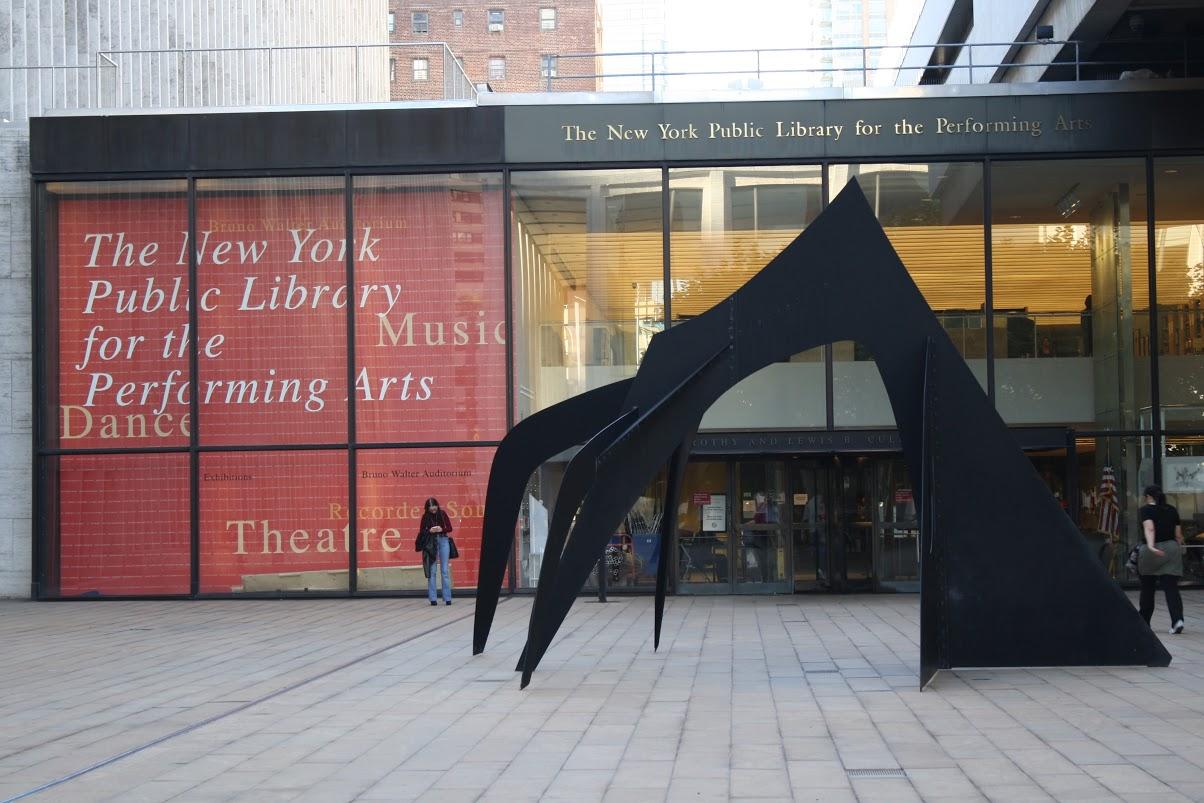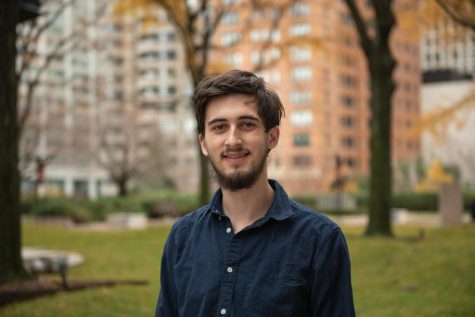Fordham’s Relationship With New York Public Libraries
Fordham community utilizes the NYPL’s resources to further their studies, referring to the university’s motto
Iconic facade of the New York Public Library, a cultural hub facing Sunday closures amidst budget cuts, impacting student access and city resources.
May 5, 2022
Displayed boldly in front of the Leon Lowenstein Center’s escalators, the university’s motto reads, “New York is my campus. Fordham is my school.” The slogan reminds members of the Fordham community that the university’s location allows them to utilize New York City as an extension of their academic experience.
One of the resources that New York City has to offer is the New York Public Library (NYPL) system, with over 92 branches across the boroughs. Students can apply for an NYPL library card by using their Fordham ID card to prove that they are a student or providing proof of residency in New York state.
For Isabella Alejandro, Fordham College at Lincoln Center (FCLC) ’25, the NYPL was a key factor in her decision to study at Fordham.
“The public library was really one of the things that sold New York City for me,” she said.
Alejandro grew up in Hong Kong, but her family is originally from the Philippines. She noted that the public library system in the Philippines is less popular than the one in New York, so access to such resources became paramount to Alejandro’s college experience.
Most of her visits are to the Riverside branch of the NYPL on 66th Street and Amsterdam Avenue, which is the branch closest to the Lincoln Center campus. Although she often visits the Riverside branch to borrow books, Alejandro recommends the NYPL’s main branch, the Stephen A. Schwarzman Building on 42nd Street and Fifth Avenue, as a study space.
“It’s a really good place to study if you like the ambient noise of the library (with) people working around you,” Alejandro said.
Sola Quarterman, FCLC ’25, is a regular at the NYPL’s main branch. Despite the 10-15 minute subway ride from the Lincoln Center campus, she frequents this branch due to the charm and aura of the Rose Reading Room located in the Schwarzman Building.
Quarterman added that she prefers to use the NYPL as a study space as opposed to coffee shops because she knows that in the library “everyone is really polite and will stay quiet.”
Alejandro echoed this sentiment, describing how “being around other people who are working pressures you into working yourself, because in coffee shops people are there to chat; people are there to eat.” She continued, “In a library, people usually know they’re there to work, and you get the pressure to keep that façade as well.”
“One of the wonderful synergies that emerged between the New York Public Library and us is that they have an incredible Judaica collection.” Magda Teter, professor of history
Although Alejandro believes that “there’s no comparing an e-book to a real physical book,” she regularly uses the NYPL’s digital collection. She borrows e-books often, especially when she needs to quickly gain access to a text for class, because the queue for e-books is shorter than the wait for physical books.
The NYPL also has a unique relationship with Fordham through its partnership with the Jewish studies program. The joint research fellowship in Jewish studies was announced in 2017, spurred by the work of Magda Teter, professor of history, Shvidler Chair in the Judaic studies department and organizer of the Fordham-NYPL lecture series.
Teter approached the NYPL regarding a potential partnership with the university, through which a research fellowship program would be established as well as a lecture series.
“One of the wonderful synergies that emerged between the New York Public Library and us is that they have an incredible Judaica collection,” she said. “The Judaica collection is over 100 years old, has all kinds of treasures from medieval manuscripts to more recent works, so it’s a really incredible resource.”
The fellowship program has proved to be successful, bringing in academics from all around the world.
Teter added that Fordham’s Jewish studies program is very young, which has impacted the amount of Jewish studies library resources the university has been able to acquire. While the university’s library collection continues to grow, it is incomparable to the resources for Jewish scholarship provided by the Dorot Jewish Division of the NYPL.
The fellowship program has proved to be successful, bringing in academics from all around the world. The joint committee of Fordham faculty and NYPL librarians have recently selected the cohort of fellows for the upcoming academic year, according to Teter. There will be five fellows who will host talks in the Fordham-NYPL lecture series.
“It’s been wonderful to bring these amazing scholars to Fordham, share their work with our community, while also having this strong partnership with the New York Public Library,” Teter said.
She added that she has used the library to do research in the Jewish division as a fellow at the Cullman Center for Scholars and Writers. Teter described how the NYPL’s resources have been useful to her as an educator and noted an incident in which she needed to provide students with a text for class on short notice.
Teter also mentioned that there have been numerous benefits of the partnership between Fordham and the NYPL, such as raising the profile of the Jewish studies program at Fordham and the university as a whole.
“It was a savior for me as a professor and for the students, so it is a really wonderful resource,” Teter said.
Teter also mentioned that there have been numerous benefits of the partnership between Fordham and the NYPL, such as raising the profile of the Jewish studies program at Fordham and the university as a whole.
“It is beautiful; it always has amazing exhibits, and it is free. And it is really something to remember and to use,” she added.

